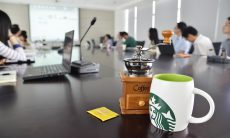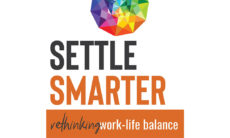This week marks the first of two editions that look at change management, learning/continuous improvement and innovation. While none of us likely need to nor necessarily look for additional change, given all that continues to transpire in the world around us, it seems fitting to spend some time exploring the potential benefits and need for thoughtful and deliberate change.
There’s a range of perspectives and reflections to be found in both the articles and podcasts sections. Themes explored include: effective organizational change, adaptive personal change, the power of systematic social change and the impact of and need for continuous learning and improvement in our professional and personal lives. In particular, the TED Talks/podcasts are all as rich in content as they are diverse in topics and perspectives. They all make compelling cases for the tremendous benefit of strategic and sustained change and improvement. (I am highly partial to the interview with the brilliant and supremely humble Atul Gawande, MD, but I digress :))
As always, happy reading and listening! And please stay safe and look out for your families and your community.
Articles
3 Things You’re Getting Wrong About Organizational Change. “…One thing is clear: to survive and thrive in a risky, interconnected world of constant flux, you have to make ‘adaptability’ a part of daily life.”
How to Master Change. “All humans experience major disruptors…as this year reminds us. Profound change is best navigated by understanding the five pillars of life transitions.”
To make change happen at your organization, here’s the first step to take. “Great internal innovators don’t enter new situations wanting to keep doing things right; they have the intent to do things differently and better. Their innovations come from an ongoing drive to look for and pursue new opportunities. Without an intention to innovate, people tend to overlook opportunities and avoid taking actions to pursue them. If you can identify the belief holding you back, and then deconstruct and replace it, you will start seeing and acting on new possibilities.”
A Coaching Culture Makes an Organization More Adaptable to Change. “High-performing organizations that leverage coaching in varied modalities across their teams are more successful at navigating change compared to their peers. These organizations find their managers have greater confidence in their employees to be autonomous and creative, and the trickle-down effect helps to develop bench strength for the next generation of the organization’s leaders, better equipping its team to manage today’s change, and position itself for long-term success.”
Antifragility at Work: Change is the Only Constant. “This article is about my journey and evolution in the complexity that is one’s career, but I hope it also provides a framework for others to consider how they might “unstick” themselves and find confidence in their own unique path, through the approach of continuous iteration.”
Competitive advantage with a human dimension: From lifelong learning to lifelong employability. “Lifelong employability offers a way to meet the challenges of an evolving workforce and the rise of automation with a sense of aspiration and hope, rather than fatalism and patchwork solutions. It’s also crucial for long-term corporate survival and for national competitiveness. By changing how they think about L&D, senior executives can get ahead of the challenge and start making a better workplace for everyone.”
TED Talks/Podcasts
TED 2020: Activism, changemakers and hope for the future. “Education activist (and recent Oxford graduate) Malala Yousafzai reflects on the defining moments of her life, how she balances passion with personhood and where the world finds itself during the COVID-19 crisis. With humor and humility, she shares her dreams of seeing social progress in her lifetime, explains why girls education advocacy must not relent during the pandemic and champions youth activists worldwide leading the fight for a fairer future for all.”
HBR FOMO Sapiens: A Road Map for the Modern Nonlinear Life. “Modern life rarely follows a predictable, linear trajectory. That’s the argument Bruce Feiler makes in his new book, “Life Is in the Transitions: Mastering Change at Any Age.” Feiler spent years interviewing hundreds of people across the U.S. about their major life transitions — or ‘lifequakes,‘ as Feiler calls them. When he analyzed those stories, the results showed that about half of all transitions are chosen, while the other half are environmental. As such, Feiler says, these life transitions offer valuable opportunities for us to revise the stories we tell ourselves about our life experiences and what they mean for us.”
The Knowledge Project with Shane Parrish: Atul Gawande: The Path to Perpetual Progress. “The world-renowned surgeon, writer, and researcher Atul Gawande shares powerful lessons about creating a culture of safe learning, the critical difference between a coach and a mentor, and how to ensure constant improvement in key areas of your personal and professional life.”
HBS Managing the Future of Work: Unilever’s workforce transformation: hard truths and help with change. “Unilever is several years into a company-wide plan to revolutionize its workforce. Faced with the challenge of selling its employees on change as opportunity, the multinational offers job counseling, retraining, and assistance with career moves—within the company or elsewhere. Executive vice president of HR business transformation, Nick Dalton, discusses what it takes to be transparent about coming changes and work with employees, unions, governments, and others to identify mutually beneficial transitions.”
Blog Posts
Ryan Holiday: It’s Not About Routine, but About Practice. “In a world where everything is uncertain. Where things are changing quickly. Where chaos reigns. And very little is under our control. What we need is simple…We need practices.”
Strategy and Business: Restoring craft to work. “The innate desire to do a job well has greater motivational force than any corporate purpose.”
Farnam Street: Chesterton’s Fence: A Lesson in Second Order Thinking. “A core component of making great decisions is understanding the rationale behind previous decisions. If we don’t understand how we got ‘here,’ we run the risk of making things much worse.”
Arts, Music & Culture Corner
The Return of Kathleen Edwards. “The singer-songwriter quit music and opened up a café. Now she has a new album.”
Get Lit with All Of It: Aimee Mann. “We air highlights from our conversation with Grammy-winning songwriter Aimee Mann, from our virtual Get Lit with All Of It book club event, for Kate Elizabeth Russell’s My Dark Vanessa. Mann performed two songs for the event, one of which was featured in the playlist Russell made to accompany her novel.”
The Unsinkable Chrissie Hynde. “She’s led the Pretenders through death, discord, and stretches of silence. And as the band releases a gut-punch of a new album, she’s not about to let a little quarantine keep her down.”
Reflection
“Time Was”
by Paul Kane
Still, I must not forget that I once managed to put these things into writing. — Blanchot
When the high-pitched sounds of the August continuo
circulated like breezes through the immovable heat,
time was a single leaf drifting upwards, then down.
In the emptying out, the vacating of routine,
the laboring fullness came to pass, and became,
in passing, what went before and never came again:
the bellflower, blue against the lichened rock,
the sudden oriole in the cherry tree,
the offhand remark indelible in the mind.
In the morning within the morning, in the midnight
within the noon, word echoed within word—
while the mockingbird sang a palindrome of time.
Between the background of the body, and the fore-
shortened space of speech, we lived in the middle distance
where time was, and was not—where we are living still.







